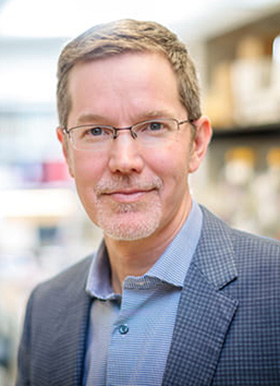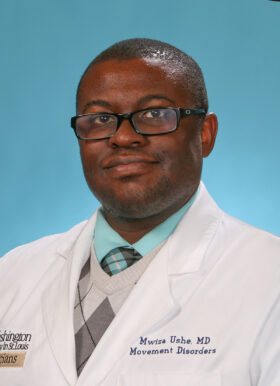Collegiality and collaboration are hallmarks of our institution. Whether you’re a faculty member or a trainee, you’ll be part of a broad community of physicians and scientists willing and able to help you achieve your goals.
Collaboration

Collaboration across disciplines is easy here, and investigators routinely help each other out. It’s a fantastic environment for research.
Timothy Miller, MD, PhD, David Clayson Professor of Neurology
At WashU Medicine, collaboration is the norm, universitywide. Researchers and clinicians see each other as helpful colleagues, not competitors. Investigators routinely assemble multidisciplinary teams of experts from across the school and the university, focused on a shared research interest or a major clinical challenge. Bringing the best minds together supercharges the discovery process, making research easier, more impactful and more rewarding.
Collegiality
“Midwest nice” is a stereotype, but it’s also true: Our department, our university and our city provide a welcoming, friendly environment in which to work and learn. Faculty and trainees forge strong relationships, working together collegially with an attitude of mutual support and respect. The familial vibe often extends into after-hours socializing.
Mentorship

No matter what you want to do, you will have a strong mentor.
Mwiza Ushe, MD, Vice Chair for Diversity, Equity and Inclusion; Professor of Neurology
Strong mentorship is baked into our culture. No matter where you are in your career, and whatever your interests, you’ll get the guidance you need to find your niche and succeed.
To foster successful mentorship, the department puts forward faculty who are naturally strong mentors and provides training for those who want to develop mentorship skills. We take a particularly purposeful approach to mentoring individuals from groups underrepresented in medicine.
Trainees and faculty at all levels draw support from the breadth and depth of our neuroscience community. Guidance is readily available from leading faculty in every area of medicine — about research methodology, ideation, study approaches and techniques, facilities, services, technology and more.
Clinical environment
A large, diverse patient population and comprehensive strengths make WashU an enriching place to practice medicine.
Research environment
WashU offers a staggering breadth and depth of expertise across biomedicine and excels in multidisciplinary collaboration.

Diversity, equity, inclusion & belonging
DE&I are core values, woven into everything we do — in training, recruitment and hiring, research, strategic planning and career development.